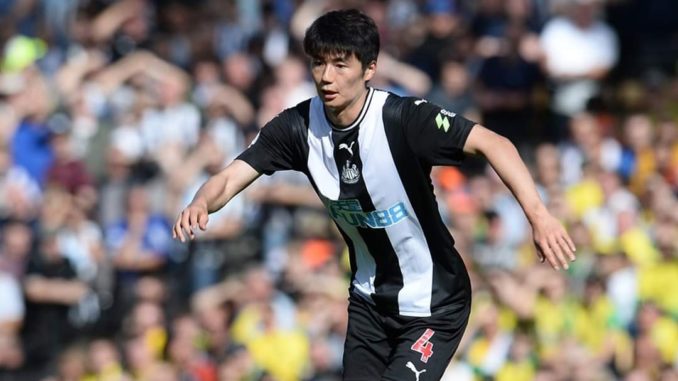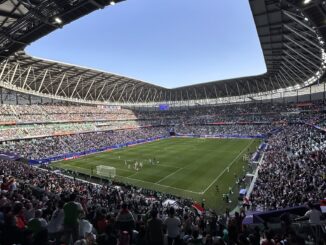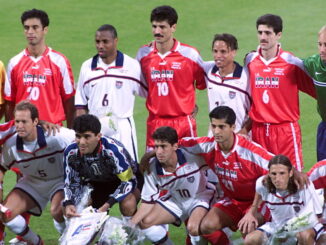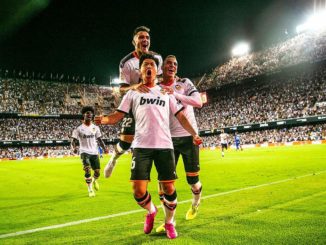
Robbie Fowler wants us to be realistic.
Signing former Korea Ki Sung-yueng, for any A-League club, the former Liverpool legend contends, is unrealistic.
It’s hard to criticise a player that has had the career Fowler has, but such an attitude, from a coach that filled his side with players from the lower reaches of the English system, doesn’t speak well of his ambition as a coach.
Sydney FC signing Alessandro del Piero? Most thought that was unrealistic, but those that wanted it took the chance and made it happen.
Melbourne Victory signing Keisuke Honda? Most thought that was unrealistic too, but again those that wanted him made it happen.
Where would the A-League be if the likes of Lou Sticca, Tony Pignata, Anthony Di Pietro and Kevin Muscat looked at the challenge ahead of them and thought, ‘too hard, wont bother’?
The A-League owners, during their bitter civil war with the FFA, told us the league needed to be ambitious. That they would invest $100 million over a number of years to take the league off life support and bring it back to life.
And now that they’ve been handed the keys to the kingdom, where has that ambition gone?
Ki is one of the most recognised and decorated players in all of Asia over the last decade, captaining his country and enjoying a stellar career in Europe with the likes of Celtic and Newcastle United.
Before he became a household name in Europe he spent a number of years living in Brisbane, attending John Paul College from 2001 to 2005, in which time he learned to speak fluent English, which just adds to his marketability and appeal.
Shinji Ono and Keisuke Honda have both lit up the A-League at various times, although you could argue that we never saw the best of Honda. But when he was on song he was close to the best player in the league. The same goes for Ono.
But the A-League is currently devoid of star names from the continent we call home.
It seems almost every A-League club speaks of wanting to “crack” the Asian market, without really having an idea of how actually do that. A little hint, it’s not just by playing in the AFC Champions League. It starts with signing their players and in Korea there are few bigger names than Ki Sung-yueng.
With a superstar wife, they are one of the glamour couples of South Korea. Their arrival would certainly add a bit of “bling” to the A-League which, lets be honest, it’s in desperate need of at the moment.
But Australian football is in a state of inertia at the moment. Some would argue that is its default position.
Sydney FC CEO Danny Townsend chimed into the debate on twitter on Wednesday, suggesting the appeal of Ki was low and wouldn’t drive a spike in attendance to justify his signing.
Maybe, maybe not. Perhaps among the traditional Europhile supporter base that is probably the case. We’ll probably never know because no club seems willing to go out on a limb and try.
But did the Asian Cup in 2015 exist in a vacuum? Did the tens of thousands of expat Asian fans that were engaged suddenly disappear once the tournament ended?
In 2017, the Korean Foreign Ministry estimated there were up to 180,000 Koreans living in Australia. As many as half of those are thought to be living in Sydney.
We saw when they were engaged they turned out en masse during the month of January 2015. There were about 30,000 of them at the final, and most of those were local Korean-Australians. What efforts have been made to convert them into fans of the A-League and fans of their local clubs?
Signing one of their best players, a former captain of the national team no less, is a great starting point to re-engaging with them.
Someone of Ki’s stature also opens doors for further opportunities in Asia, particularly in his homeland. The questions is though, do clubs know how to maximise the potential of a player like Ki?
The experience of Honda at Melbourne Victory suggests they do not, so the issue here isn’t with the player not being marketable enough, it’s with the clubs and their executives who, quite frankly, don’t how how to make the most the asset at their disposal.
As the A-League looks set to pass on another glorious opportunity to engage with Asia, that is the sad reality for Australian football.
Photo: Newcastle United




